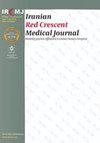经尿道输尿管碎石术患者术前省略抗生素预防的安全性
IF 0.2
4区 医学
Q3 MEDICINE, GENERAL & INTERNAL
引用次数: 0
摘要
背景:经尿道输尿管碎石术(TUL)是治疗输尿管结石的一种常见且高效的方法。术前抗生素预防术后tul感染的必要性仍然存在争议。目的:本研究旨在探讨术前停用抗生素预防是否会影响TUL患者术后并发症的发生率。方法:本对照临床试验纳入2021年11月至2022年3月期间接受TUL的62例患者(15-65岁)。采用渐进式和顺序式抽样方法将患者分为两组:术前尿培养(UC)阳性33例,术前UC阴性29例。两组患者术前均未接受抗生素预防治疗。回顾两组患者围手术期和术后的预后,如手术时间、结石清除率、术后镇痛药的使用、发热、尿路感染(UTI)和住院时间。结果:UC阳性患者年龄明显大于UC阴性患者(P=0.018),且BMI较高(P=0.016)。两组患者围手术期各项指标及术后预后比较,差异均无统计学意义(P < 0.05)。此外,UC阳性组患者的基础疾病明显多于其他组(P=0.022)。两组均未发现术后症状性尿路感染。UC阳性组发热3例(9.1%),UC阴性组发热1例(3.4%),两组差异无统计学意义(P=0.616)。在匹配的logistic回归模型中,术前UC对术后发热的影响不显著(P=0.40)。结论:我们的研究结果表明,在没有症状性阳性UC的患者中,外科医生可以酌情停用预防性抗生素。本文章由计算机程序翻译,如有差异,请以英文原文为准。
Safety of Omitting Preoperative Antibiotic Prophylaxis in Patients Undergoing Transurethral Ureterolithotripsy
Background: Transurethral ureterolithotripsy (TUL) is a common and highly efficient procedure for treating ureteral stones. The need for preoperative antibiotic prophylaxis to prevent post-TUL infections remains controversial.
Objectives: This study aimed to investigate whether the removal of preoperative antibiotic prophylaxis affects the rate of postoperative complications in patients undergoing TUL.
Methods: A total of 62 patients (aged 15-65 years) undergoing TUL between November 2021 and March 2022 were included in this controlled clinical trial. Patients were divided into two groups by the available gradual and sequential sampling methods: 33 had positive preoperative urine culture (UC), and 29 had negative preoperative UC. None of the patients in the two groups received preoperative antibiotic prophylaxis. Perioperative and postoperative outcomes, such as the operative time, stone-free rate, postoperative analgesic use, fever, urinary tract infection (UTI), and hospital stay, were reviewed in both groups.
Results: Patients with positive UC were significantly older than those with negative UC (P=0.018), and had a higher BMI (P=0.016). No significant differences were observed between the two groups in most perioperative variables or postoperative outcomes (P>0.05). In addition, patients in the positive UC group had significantly more underlying diseases than the other group (P=0.022). Postoperative symptomatic UTI was found in neither of the two groups. Fever was reported in 3 (9.1%) and 1 (3.4%) patients in the positive and negative UC groups, respectively, with no statistically significant differences between the two groups (P=0.616). In the matched logistic regression model, the effect of preoperative UC on postoperative fever was not significant (P=0.40).
Conclusion: The results of our study showed that prophylactic antibiotics can be eliminated at the discretion of the surgeon in patients without symptomatic positive UC.
求助全文
通过发布文献求助,成功后即可免费获取论文全文。
去求助
来源期刊

Iranian Red Crescent Medical Journal
MEDICINE, GENERAL & INTERNAL-
CiteScore
1.16
自引率
0.00%
发文量
0
期刊介绍:
The IRANIAN RED CRESCENT MEDICAL JOURNAL is an international, English language, peer-reviewed journal dealing with general Medicine and Surgery, Disaster Medicine and Health Policy. It is an official Journal of the Iranian Hospital Dubai and is published monthly. The Iranian Red Crescent Medical Journal aims at publishing the high quality materials, both clinical and scientific, on all aspects of Medicine and Surgery
 求助内容:
求助内容: 应助结果提醒方式:
应助结果提醒方式:


